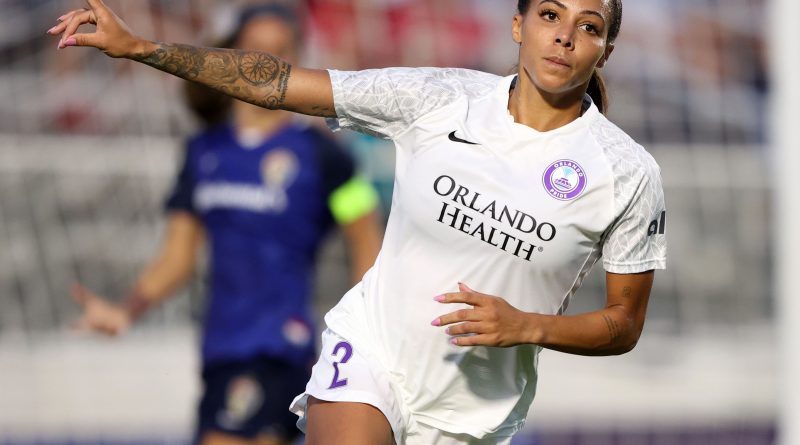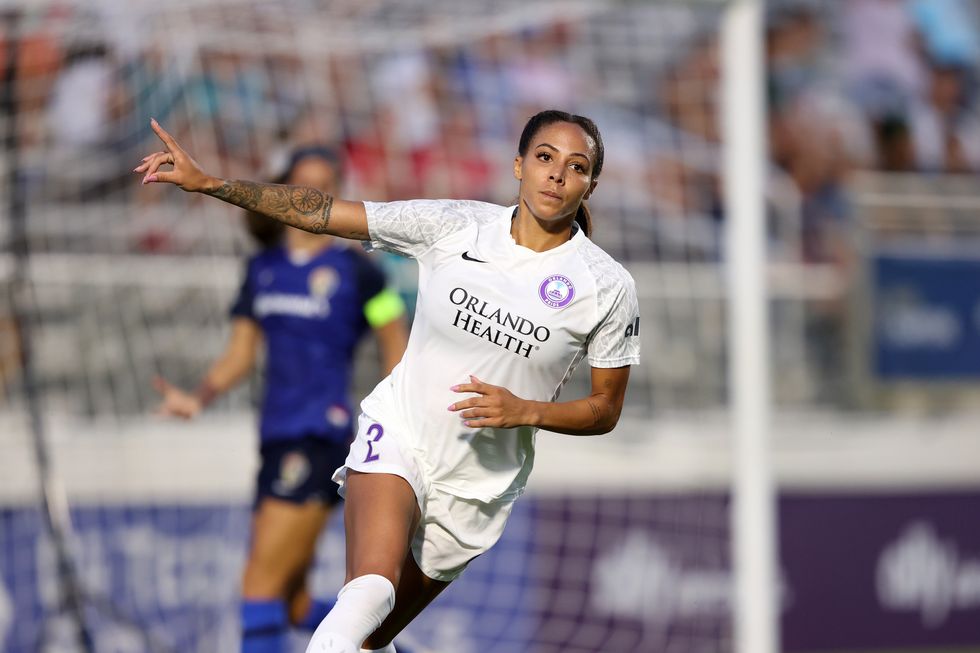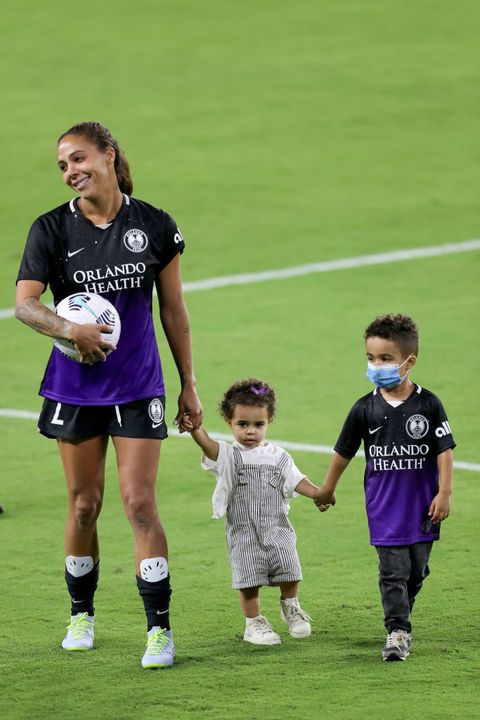Sydney Leroux Opens Up About Her Miscarriage and Why She Chose to Freeze Her Eggs

Andy Mead/ISI PhotosGetty Images
When Sydney Leroux got pregnant at 25, it was a huge surprise—one that came at supposedly the prime of her career. As a professional soccer player and an Olympic gold medalist, Leroux says the news prompted a lot of questions: If she had a baby, could she ever return to the sport? Would it help or hurt her standing? In the end, Leroux decided to have her son, Cassius, at a moment she now sees as perfect timing. “I was really unhappy for a long time playing soccer,” she told ELLE.com. “He saved me…I found my passion again.” It was an easy pregnancy, and after she gave birth in Sept. 2016, she returned and played for another season and a half. But when Leroux got pregnant for the second time in 2018, she had a miscarriage. “I was extremely naïve to think it couldn’t happen to me,” she said.
That experience led Leroux to freeze her eggs, a decision she’s kept private until now. She also teamed up with Modern Fertility, a reproductive health company that makes personalized fertility information more accessible through at-home tests, to talk about the unique challenges of navigating fertility when you’re a professional athlete whose career is dependent upon your body. “We know so much about our bodies as professional athletes, but the probably most important thing is that we don’t know what’s happening internally,” Leroux said. By working with Modern Fertility, athletes are hoping to encourage others to find out more about their reproductive health, so this essential information is no longer a mystery.
This content is imported from Instagram. You may be able to find the same content in another format, or you may be able to find more information, at their web site.
Leroux has long been open about her own struggles with fertility, posting on Twitter in Oct. 2018 about her miscarriage. She wrote, “I hate that I couldn’t talk about it. I hate that I felt like I couldn’t because there was a sense of shame and embarrassment that came with losing a baby.” Over the course of this conversation, Leroux revealed that she had been bleeding from nearly the beginning of her pregnancy, though the baby’s heartbeat was strong. She immediately thought something wasn’t right, but she and her doctors were still hopeful. “No one has any idea how many people with ovaries go through miscarriages or fertility issues; it’s one in four,” she said. “There’s a lot of us and a lot of stories that aren’t told. And the pain you carry for the rest of your life is a lot to carry on your own.”
Soon after, Leroux got pregnant again, this time with her daughter, Roux, but it was a tough time for her mentally. “I had the thought in the back of my mind that I wasn’t untouchable,” she said. So a few years later, at 31 years old, she chose to freeze her eggs. “Even though I have two healthy children, I don’t know what the future holds,” she said—something her pregnancy loss made all the more clear. “I want to make sure that the future is in my hands.”
Leroux now tells everyone to freeze their eggs if they have a chance during soccer’s off season, noting that while some players choose to have children after their careers are done, when it comes to fertility, “the older we get, the harder it is.” And while she had to pay for the procedure out of pocket, she said some women’s soccer teams have started offering coverage for fertility services. “It makes me happy to know that those things are becoming the norm in some places, and we hope to see that take over the entire league, because playing professional sports is different than any other job.” She continued, “It starts the conversations earlier than the ones that we’re having now. People on those teams, rookies coming in, they’re learning about fertility, they’re learning about their reproductive health. Those were things that we never had.”
For Leroux, access to reproductive health information and services is also part of the fight for equality, including in sports. “It affects us more than men, because we’re the ones getting pregnant,” she said. “Professional male players can still use their bodies, we can’t. So when we look at equality, we need to look at that as well, and we need to give people with ovaries all the information that they need on what’s going on inside of their bodies. We deserve to know.”
This content is created and maintained by a third party, and imported onto this page to help users provide their email addresses. You may be able to find more information about this and similar content at piano.io



